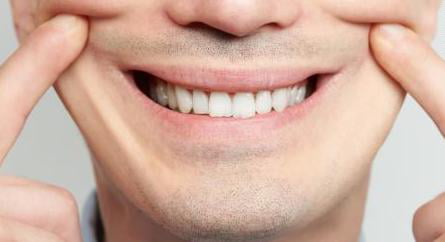According to a new study, fake smiling at work may lead to heavier drinking after hours.
Researchers at Penn State and the University at Buffalo studied the drinking habits of people who work with the public.

In the study that was published in the Journal of Occupational Health Psychology, they found employees who forced themselves to smile and be happy in front of customers were more at risk for heavier drinking after work.
Researchers say faking positive emotions, including resisting the urge to roll one’s eyes, can be so draining for some that it can lead to alcohol consumption.
In a statement, Alicia Grandey, professor of psychology at Penn State, said the results suggest that employers may want to reconsider “service with a smile” policies.
“Faking and suppressing emotions with customers was related to drinking beyond the stress of the job or feeling negatively,” Grandey said. “It wasn’t just feeling badly that makes them reach for a drink. Instead, the more they have to control negative emotions at work, the less they are able to control their alcohol intake after work.”
“Smiling as part of your job sounds like a really positive thing, but doing it all day can be draining,” Grandey said. “In these jobs, there’s also often money tied to showing positive emotions and holding back negative feelings. Money gives you a motivation to override your natural tendencies, but doing it all day can be wearing.”
Grandey and the other researchers examined data that came from a previous survey called the National Survey of Work Stress and Health, comprising phone interviews with 1,592 workers in the United States. These workers were asked how often they faked their smiles (called surface acting), how often they drank after work, how much control they feel they have on the job and how impulsive they are.
“The relationship between surface acting and drinking after work was stronger for people who are impulsive or who lack personal control over behavior at work,” Grandey said. “If you’re impulsive or constantly told how to do your job, it may be harder to rein in your emotions all day, and when you get home, you don’t have that self-control to stop after one drink.”
The link between forced smiles and drinking is especially strong in employees who are impulsive and who work in jobs where they only have one-time encounters with customers — like the clerk who rings you up at the mall — as opposed to, say, health care workers, who develop more of a long-term relationship with patients.
Age may play a part in this too. The researchers note that most workers in retail and restaurant work tend to be younger, and in entry-level jobs, so they may not have the self-control needed to fake a smile and not overdrink later at home or at a bar.
Grandey suggested employers use the findings from the study to construct more desirable work settings for their employees.
“Employers may want to consider allowing employees to have a little more autonomy at work, like they have some kind of choice on the job,” Grandey said. “And when the emotional effort is clearly linked to financial or relational rewards, the effects aren’t so bad.”
